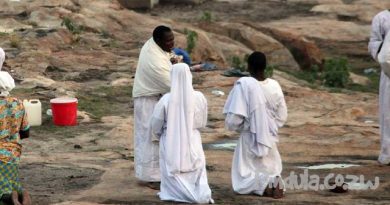Malawi High Court dismisses Bushiri couple’s extradiction case due to hearsay evidence, threats to their lives
The Malawi High Court has blocked the extradition of Shepherd Bushiri and his wife Mary.
Hearsay evidence, documents not properly authenticated and threats to their lives were among the reasons provided by the High Court of Malawi as it ruled against the extradition of the Bushiris.
Self-proclaimed prophet Shepherd Bushiri and his wife Mary Bushiri fled South Africa in November 2020, days after being granted bail for fraud and money laundering charges amounting to R102 million.
The High Court of Malawi ruled on Friday that a magistrate’s decision to extradite to South Africa was legally unsound, procedurally unfair, and put their lives at risk.
In his judgment, Justice Mzonde Mvula ruled that the extradition process “fell short” of the standards required under Malawi law and that the couple had been denied their constitutional right to be heard in the extradition case.
The ruling sets aside the decision of the Chief Resident Magistrate’s Court in Lilongwe, which in March had ordered the Bushiris’ committal to await surrender to South Africa.
Mvula found that the lower court “did not exercise judicial discretion correctly by making a finding for extradition, when the evidence on the extradition hearing fell short to make this finding.”
He said the proceedings violated the fundamental legal principle of audi alteram partem, the right to be heard, because the magistrate “delivered a ruling after hearing only the case of the Respondent” and failed to hear the couple.
The judge emphasised that “even in extradition proceedings, where hearing is opted, then both sides to the case ought to be heard.”
He also raised the issue of human rights as the Bushiris had claimed that their lives would be in danger if they were sent back to South Africa.
Mvula said, “The right to life is more paramount than availability to face trial,” faulting the magistrate for failing to “preserve the lives of the applicants.”
He also found that the extradition request relied heavily on “hearsay evidence,” pointing out that the witness for South Africa “admitted under cross-examination that he relied on investigators, who themselves relied on complainants.”
He ruled that such evidence was “inadmissible in Malawian extradition proceedings,” adding that “equality before the law is paramount and cardinal principle of law.”
The court also found that documents submitted by South Africa were not properly authenticated as the magistrate did not have sight of original documents.
“The scanned documents shown to Justice Schyff for authentication were not identical to the originals,” Mvula said, noting that “Justice Schyff confirmed she never saw the originals, only scanned copies.”
The High Court also questioned the delay in the matter. It said the extradition request was “tainted by bad faith, political motivation, and oppressive delay,” pointing to a five-year gap between the alleged offences in 2015 and the charges brought in 2020.
South African Justice and Constitutional Development Minister Mmamoloko Kubayi was reviewing the judgment, ministerial spokesperson Terrence Manase confirmed.
He said Kubayi noted the court’s decision.
“The South African Government is studying the judgment and will determine the next legal course of action once a full assessment of the ruling has been concluded,” he said.




